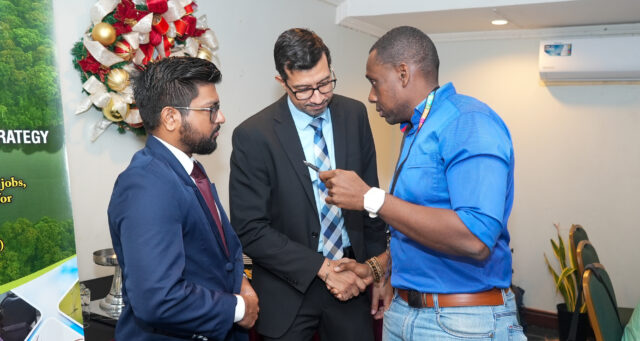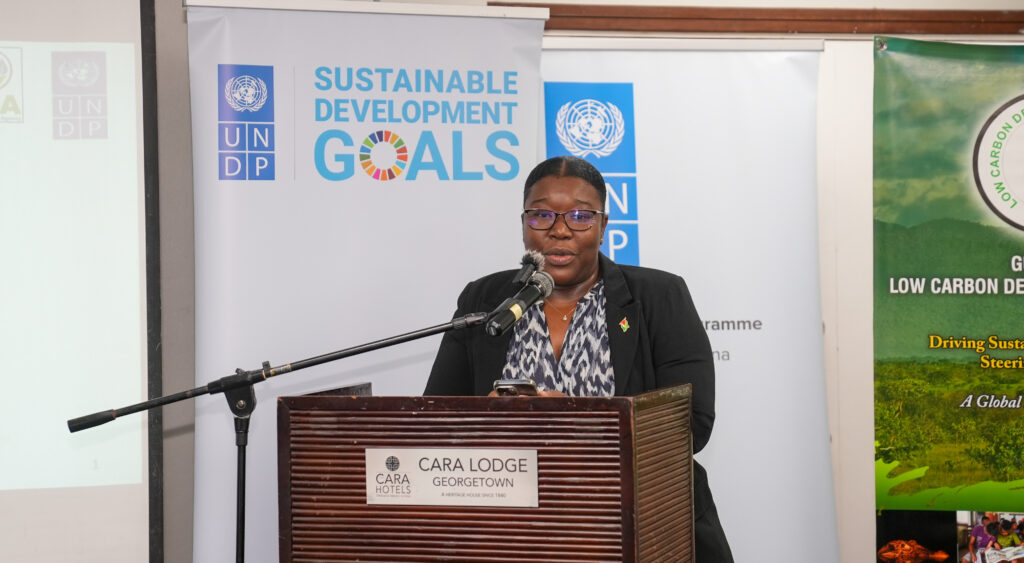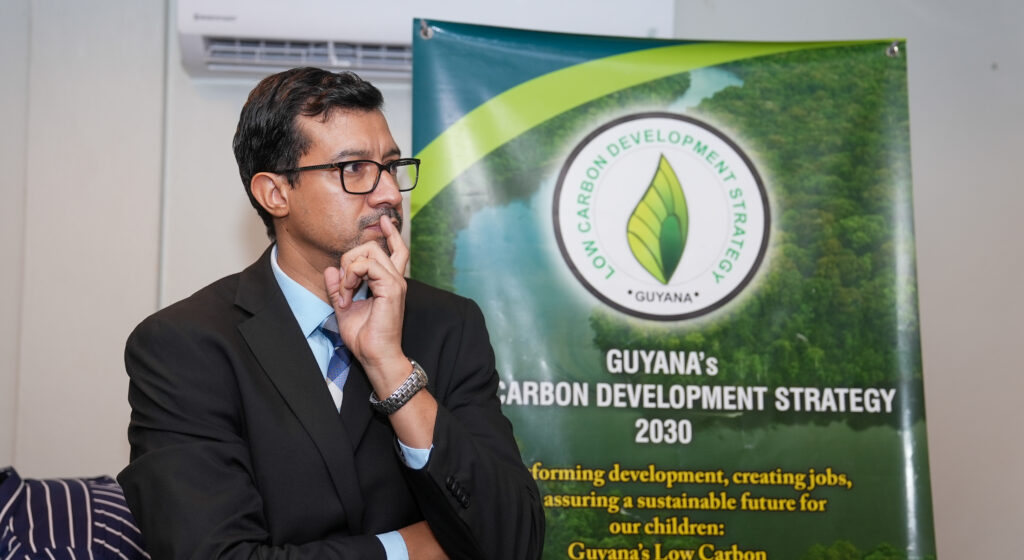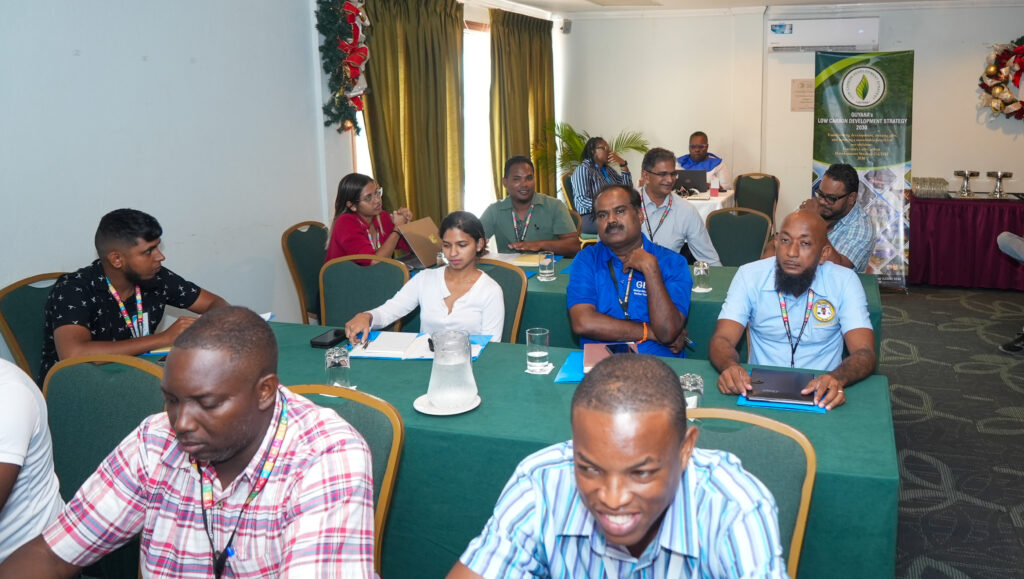
A three-day energy audit training workshop commenced at Cara Lodge in Georgetown, bringing together stakeholders to build capacity under the Mainstreaming Low Emission Energy Technologies project.
The workshop focuses on energy audits and aims to equip participants with the knowledge and skills needed to assess energy consumption in various sectors.
Shevon Wood of the GEA highlighted the critical importance of energy audits in Guyana’s development trajectory. “As Guyana continues to develop, our energy demand, particularly as it relates to electricity in buildings, will play an increasing role,” she said.

The workshop covers a range of topics, including:
- Walkthroughs of energy audits
- Energy-efficient lighting
- Air conditioning and refrigeration systems
- Installation of fans and pumps
- Tariff structures
- Financial analysis of energy efficiency measures
Spearheaded by the Office of the President through its Department of Environment and Climate Change, the initiative is supported by the United Nations Development Programme (UNDP) and funded by the Global Environment Facility (GEF). The Guyana Energy Agency (GEA) and Guyana Water Incorporated (GWI) serve as the project’s lead technical agencies.
Nikolaus Oudkerk, Coordinator at the Department of Environment and Climate Change, emphasised the project’s alignment with Guyana’s Low Carbon Development Strategy (LCDS).
“This is one of the activities under the larger project aligned with the LCDS,” he explained. He highlighted that the initiative includes a range of complementary activities aimed at advancing energy efficiency and renewable energy across key sectors.

Key Activities Under the Project
The Mainstreaming Low Emissions Energy Technologies project has already achieved several milestones:
- Development of a Grid Code: A grid code has been established for renewable energy systems exceeding 1.5 megawatts.
- Training and Certification: Training in renewable energy installation has been conducted, with certification provided to participants
- Curriculum Revision: The curriculum at the Guyana Technical Institute (GTI) has been updated to incorporate renewable energy and energy efficiency modules
- Performance Standards: Minimum energy performance standards for air conditioners and refrigerators have been developed
- Solar Energy Installations: Plans are underway to install over 1 megawatt of solar energy across eight GWI facilities to enhance operational sustainability.
Looking ahead, another workshop is scheduled for January 2025 to explore energy efficiency labelling standards in collaboration with the Guyana National Bureau of Standards (GNBS) and other stakeholders. Additionally, several variable speed drives and water pumps will be purchased and installed at GWI facilities for increased efficiency leading to lower energy consumption, while meeting consumer demands.
Addressing Energy Demand in Guyana
Currently, Guyana relies heavily on fossil fuels for its energy needs, with the majority of electricity generated using imported diesel and heavy fuel oil. This dependency not only increases greenhouse gas emissions but also makes energy costs high and vulnerable to global oil price fluctuations. Efforts to transition towards renewable energy are therefore critical in reducing reliance on fossil fuels and enhancing energy security.
According to the Low Carbon Development Strategy (LCDS), Guyana plans to expand its renewable energy capacity through investments in solar, wind, and hydropower projects. Key initiatives include hydropower and widespread solar installations to bring affordable and clean energy to remote communities. These steps are designed to achieve energy independence while supporting global climate action goals.
“The different energy consumption devices and appliances that will be covered under this course over the three days account for a major portion of our electricity use,” Wood noted, underlining the practical importance of the training.

Building a Sustainable Future
The Mainstreaming Low Emissions Energy Technologies project demonstrates Guyana’s commitment to achieving its climate goals under the LCDS.
By integrating renewable energy systems, developing energy efficiency standards, and building technical capacity through initiatives like the energy audit training, the project is paving the way for a more sustainable energy future.











